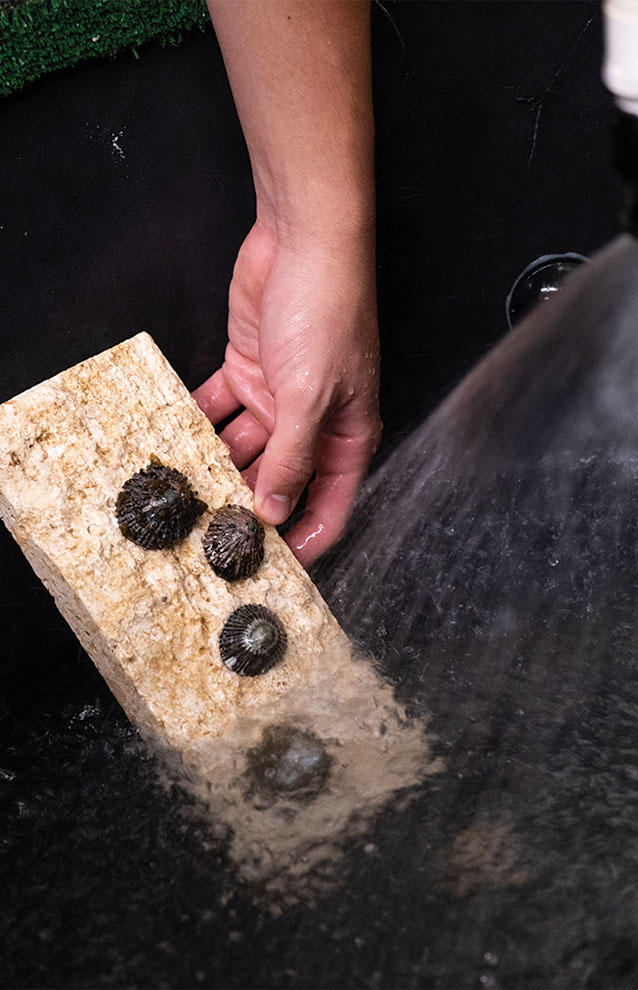
Not everyone loves the sweet, briny flavor of opihi, but those who do are willing to die for it. The native limpet clings to rocks in Hawaii's intertidal zone, and opihi pickers sometimes risk their lives to pry them off in between sets of crashing waves. The mollusk is a staple at luau, and it's known in Hawaiian lore as Pele's favorite snack. But as with many delicious living things, it's becoming scarce. While there are size requirements for legal harvesting, the lack of regulation on the number that can be picked, combined with lax enforcement, has devastated opihi, particularly on Oahu.
"You only need one group of people to overpick and ruin an entire area," says Angel Valdez, one of two graduate student researchers in the Department of Molecular Biosciences and Bioengineering in the College of Tropical Agriculture and Human Resources at the University of Hawaii at Manoa. "Once they're wiped out, helmet urchins move in where the opihi once were. It's supposed to be a balance, but if you wipe out one species, another moves in and doesn't leave room for the other to come back. It can take years for the opihi to come back."
Valdez and fellow grad student Mitch Marabella are tackling the complicated endeavor of breeding opihi in the lab-something that's been tried going back to the 1980s but never achieved. Employing novel biochemical approaches, Valdez and Marabella have gotten closer than most of their predecessors-one of their blackfoot opihi (Cellana exarata) survived for thirty-two days (the record-six months-was achieved by a grad student in 1983). "So far, no one has been able to keep them alive long enough to witness a full life cycle, which complicates the ability to find techniques that will enable success," Angel says. Mitch adds, "Yet success is arbitrary in science. Even studying methods that haven't been successful is helpful because it points us in new directions." Once Valdez and Marabella have coaxed opihi to grow to viability, they will take the next step: transplanting them into the wild.
Valdez and Marabella both graduate in two years and hope that the next generation of students will carry the torch (they managed to keep theirs lit through crowdfunding once the research money ran out). Even if successful, science alone won't be enough; public awareness and cooperation are critical to ensuring that future luau don't go lacking. "The best thing people can do is just be mindful," says Valdez. "Don't take more than you need. Everything is necessary for each little thing in the environment to thrive."


